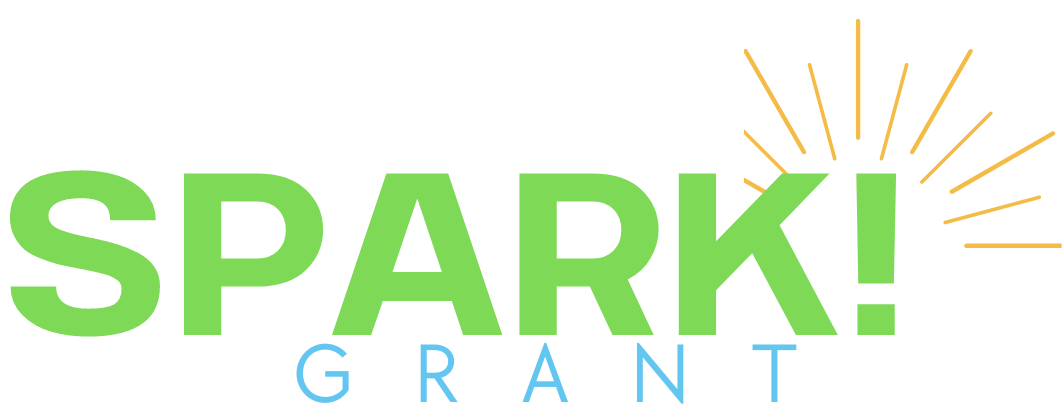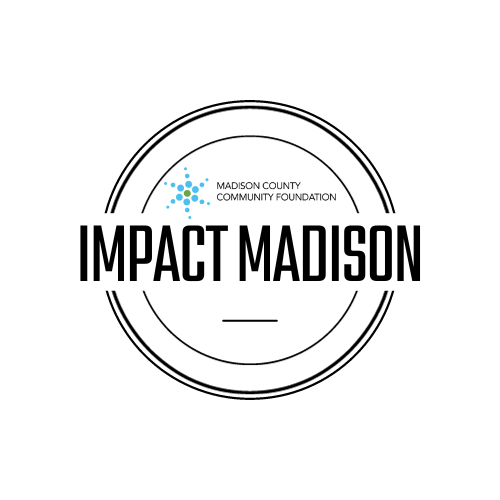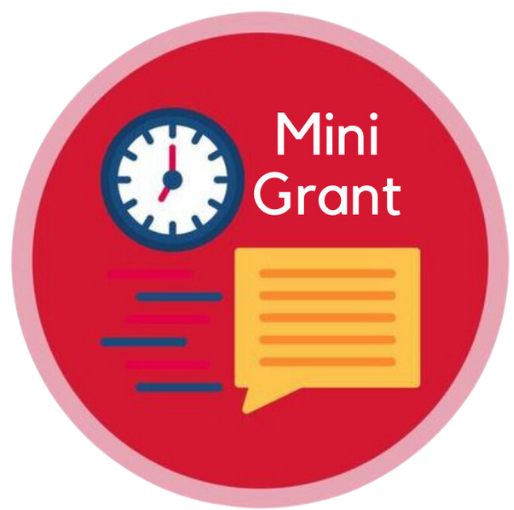Grants
Impacting the Community
The Madison County Community Foundation has been providing funding to our community since 1992. The funds originate from donor advised funds, agency endowments, scholarships and other types of restricted funds. In addition, grants to community organizations are also supported through competitive grants awarded from unrestricted funds in the Foundation.
We create our primary impact through our grantmaking. MCCF currently manages over 200 charitable funds created by individuals, families, businesses and organizations for charitable purposes. Income from these funds annually provides grants to organizations and projects and programs to improve the quality of life within our community. MCCF provides meaningful, long-term and permanent ways for people to give back to their community and to causes and organizations that matter to them.
Empowering our Partners
 The Empowering our Partners education series is Madison County Community Foundation’s commitment to supporting our nonprofit partners in a variety of ways. Our goal of this 5-part series is to provide learning opportunities to build your organizational capacity as well as expand your professional networks.
The Empowering our Partners education series is Madison County Community Foundation’s commitment to supporting our nonprofit partners in a variety of ways. Our goal of this 5-part series is to provide learning opportunities to build your organizational capacity as well as expand your professional networks.
During our annual grant information session, attendees were surveyed on the topics that would be most beneficial. More than 50 Madison County serving agencies attended and shared their educational priorities. The session topics are a direct reflection of their responses.
We have engaged Hedges, a nonprofit consulting firm based in Indianapolis, to lead three of the sessions, local agency experts for one session, and our very own President for one session. Learn more about Hedges by visiting their website: https://www.hellohedges.com
August 14, 2024- Revisiting Mission, Vision, and Values (9am-11am, optional networking lunch after)
This session covers best practices in creating vision, mission, and values statements and provides the opportunity for organizations to revisit these key organizational statements to better guide their strategies, decisions, and teams.
Led by: Hedges, an Indianapolis based nonprofit consulting firm
$10/person for session only $20/person for session and networking lunch
September 10, 2024- Marketing and Development (1pm-2:30 pm)
This session will be a panel discussion of local nonprofit professionals who specialize in marketing and development. Topics of discussion include setting marketing strategies, social media outreach, development tips and more.
Led by: Local agency experts
October 23, 2024- Fundraising Essentials for Board Members (9am-11am, optional networking lunch after)
In this session, individuals looking to fulfill the fundraising responsibilities of nonprofit board membership will learn successful ways to engage in the four-part fundraising process.
Led by: Hedges
November 12, 2024- Building and Working with a Board (1pm-2:30 pm)
This session, designed for non-profit directors, will focus on the differences in board and staff responsibilities and the policies needed to ensure your organization is protected from risk.
Organizations participating in this session will receive a complimentary digital copy of Ten Basic Responsibilities of Nonprofit Boards, Third Edition (Book 1) by Richard T. Ingram.
Led by: Ben Davis, MCCF President
December 11, 2024- Creating Competitive Grant Proposals (9am-11am, optional networking lunch after)
This session focuses on what an organization needs to do to become grant ready and the components necessary to create a winning grant proposal.
Led by: Hedges
Spark Grants

The Spark Grant program is aimed at encouraging agencies to collaboratively address core issues facing our community using one or more of the following focus areas: Arts and Culture, Education, Health and Human Services, and Thriving Community (animal welfare, recreation, parks, etc.).
In 2024, there will be (4) $25,000 Spark Grants awarded to organizations who have a program or project that is innovative, transformational and/or IMPACTFUL. A successful proposal will be a program or project that is proactive in responding to a local need or opportunity and is solution-oriented and/or solves a pressing problem with documented needs. The plan enhances cooperation and collaboration among multiple organizations within the community.
Timeline
- Letters of Intent accepted: April 1-May 10
- LOI review period: May 14-17
- LOI approval notification: May 21
- Spark Grant Application period : June 3-July 12
- Site Visits and Interviews: July 29-August 16
- Grant Recipients Announced: Mid-September
Approaches: We welcome a variety of methods in tackling community issues, including direct services, advocacy, community organizing, partnerships, and others as they relate to your mission.
Collaboration: We welcome collaboration and partnership applications. Partners should select one nonprofit as the lead applicant for collaborations between two or more nonprofits. Any awarded funds are to be used for the sole purpose of the partnership's work, and the lead applicant will be responsible for managing the funds on behalf of the partners.
Diversity and Inclusion: We seek grantees and partners that incorporate diversity and inclusion into their mission, governance board, staff, volunteers, and constituents served. To receive a grant from the Community Foundation's unrestricted endowments, your organization must affirm that no person is excluded from services or employment due to discriminatory reasons, including race, color, ancestry, national origin, sex, age, religion, disability, familial status, sexual orientation, gender, or gender identity.
Evaluation
Impact:
- Will this project or program fill a community need and/or provide a community benefit? Will this project or program impact a broad segment of the community (breadth)?
- Will this project or program impact a smaller at-risk population (depth)? Breadth and depth will be considered equally.
- Is there evidence that the approach outlined in this proposal will be effective in accomplishing stated goals?
- Is there evidence of community support for this proposal from referral agencies and/or other beneficiaries?
Capacity:
- Is leadership strong and well-established?
- Is there evidence of an engaged board of directors?
- Does the organization have the expertise and resources to accomplish this project or program?
- Are the organization’s financial documents healthy?
Feasibility:
- Can this project realistically be accomplished in 12 months or less?
- Will this organization be able to sustain this project or program after grant funds are exhausted (if relevant)?
- If the request is for partial funding of a larger project, is there a clear path for the organization to make up the financial difference?
Impact Madison Grants

The Impact Madison Fund is a permanent fund that helps MCCF meet emerging local needs through strategic grantmaking to our nonprofit partners. Grants from this fund reflect Madison County's unique people, issues, and ideas. The Impact Madison Fund helps us support long-term solutions, respond quickly to emergencies, and meet the changing social, cultural, and educational needs our community faces.
Impact Madison Grants: Grants are made to support projects and programs of non-profit agencies located in or serving residents of Madison County in the following focus areas: Arts, Culture, and History, Health and Human Services, Education, Thriving Community (animal welfare, recreation, parks, etc.), and Women and Children.
Proposals are reviewed by a diverse committee made up of community volunteers and Board Members, which makes funding recommendations to the Foundation Board of Directors. Upon approval by the Board of Directors, funds are awarded.
View the list of grant recipients HERE
Mini Grants
 We understand that things beyond your control happen outside of our pre-determined grant cycles.
We understand that things beyond your control happen outside of our pre-determined grant cycles.
Therefore, we are happy to offer these staff approved grants which give MCCF the flexibility to respond to the emergent needs of our non profit partners.
Mini Grants are administered on a rolling cycle each calendar year.
Grant Requests must be for $2,500 or less.
Organizations may receive one Mini Grant per calendar year.
Requests should be for a one-time expense.
The applicant must be the organization that will benefit from the proposed use of the funds.
Requests for emergencies or immediate needs will be given priority.
Decisions will be made within 2 weeks.
Contact Kari for an application
2024 Sponorships
Please contact Ben Davis PRIOR to submitting your sponsorship application.
• Limited capacity for 2024.
• If the event supports one of your programs, please apply for a grant to fund the program instead of an event sponsorship.
Madison County Resource Guide
Click HERE to access the Madison County Resource Guide. If you have questions please contact Brittany Shryock at Family Resource Center at: blakey@fireflyin.org.
2024 Grant Program Information:
Were you unable to attend our info session on February 1st or do you need to revisit the information shared? Below is the link to the presentation:
Info Session presentationVideo PresentationHerald Bulletin article
2023 Grant Recipients
Quarter 4: Above and Beyond grant recipients
Click here to read about the grant recipients
Quarter 3: Operating grant recipients
Click here to read about the grant recipients
Quarter 2: Programming grant recipients
Click here to read about the grant recipients
